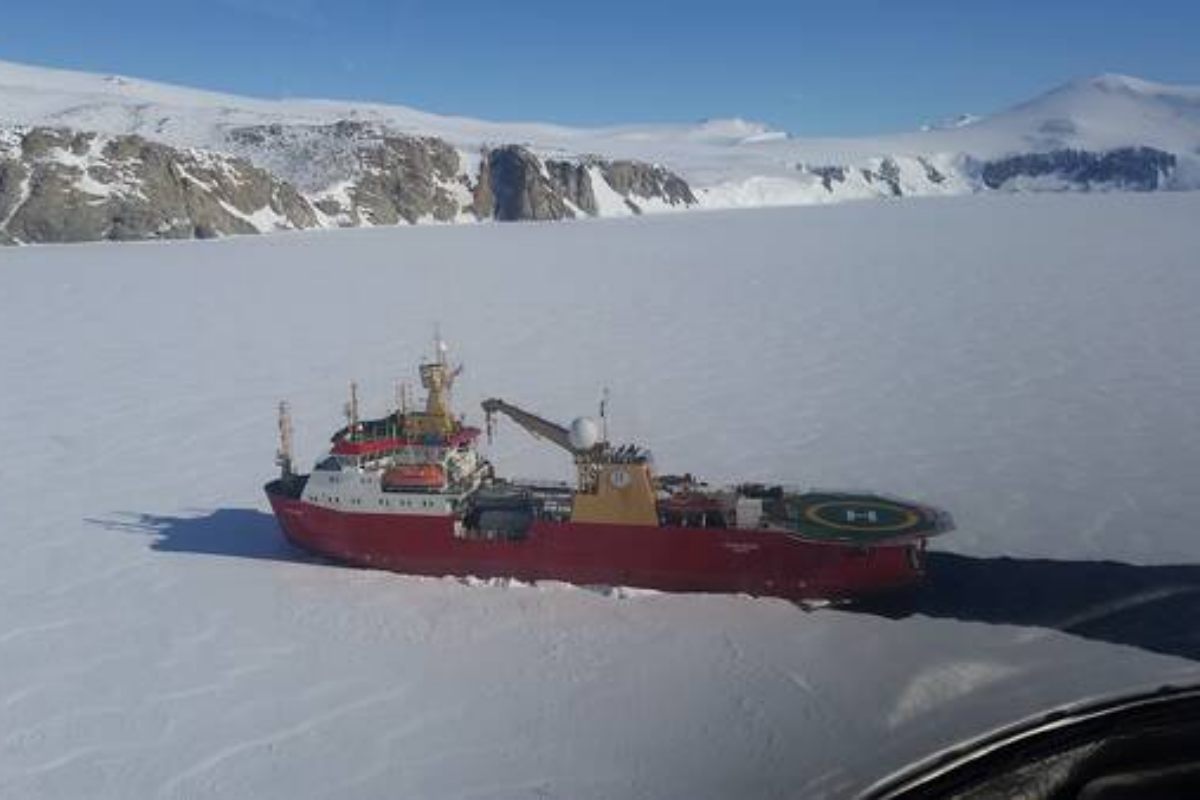The Russian Rosgeo, the largest geological exploration company in Russia, has discovered oil and gas reserves on British territory in the Antarctic, triggering - obviously - fears of drilling

@Pnra
These reserves, totaling approximately 511 billion barrels of oil, were reported to Moscow by Russian research vessels, according to evidence presented last week to the UK’s Commons Environmental Audit Committee (EAC). These findings are described as merely results from research activities. But does this guarantee safety from exploitation?
How things unfolded (and might in the future)
In an ongoing review of the UK’s interests in Antarctica, the EAC held a special session last week on Russian oil exploration in the polar region. Three ministers were questioned about Russian oil prospecting activities believed to fall within UK-claimed territory in Antarctica.
In 2020, the Russian mining exploration company Rosgeo reported that its research vessel, Alexander Karpinsky, had completed a geological survey mapping oil and gas prospects on the ice shelves of Antarctica. This survey was part of Russia’s 65th Antarctic expedition and at the time covered the southeastern part of the Riiser-Larsen Sea off the coast of Queen Maud Land, an area claimed by Norway.
However, the EAC revealed that since 2011, Russian seismic surveys have been conducted off the coast of the Weddell Sea, which falls within the Antarctic territory claimed by the UK. According to Rosgeo, these surveys uncovered about 500 billion barrels (77.6 billion metric tons) of hydrocarbon potential in the basins of the Antarctic Ocean.
David Rutley, the Parliamentary Under-Secretary at the Foreign, Commonwealth & Development Office, assured the EAC that Russia remains committed to respecting the Antarctic Treaty. In 1976, signatory nations decided to impose a moratorium on the exploration and exploitation of Antarctic minerals, adopting a precautionary approach to protect the region.
Despite this, countries like Russia have continued mining exploration under the guise of scientific research, which is allowed by the same treaty. In total, seven “claimant” nations in Antarctica, including Argentina, Australia, Chile, France, New Zealand, Norway, and the United Kingdom, had their claims suspended when the Antarctic Treaty was negotiated in 1959, rendering Antarctica a vast “no man’s land.”
Unfortunately, since Russia’s invasion of Ukraine in 2022, the governance of Earth’s polar regions has been severely tested. Experts believe the worsening relations between Russia and the West could lead to competition rather than cooperation to preserve Antarctica’s integrity. This has already started to manifest, with China and Russia blocking other treaty nations’ attempts to expand marine protected areas in the region.
The ongoing seismic data collection by Russia in Antarctica is seen as a potential threat to the permanent ban on mineral extraction, with broader implications for the integrity of the entire protocol, concludes Klaus Dodds, a professor of Geopolitics at the University of London.
